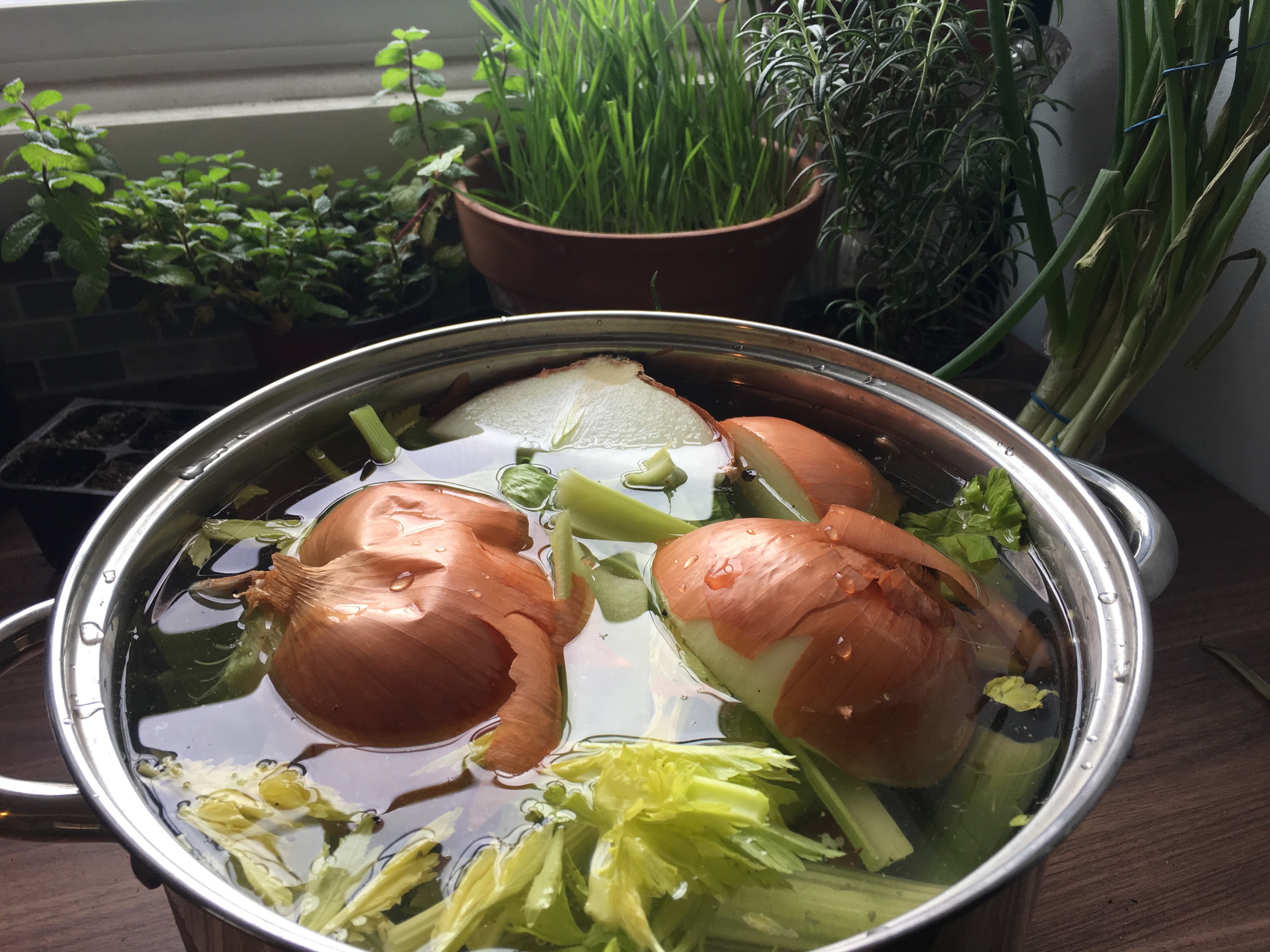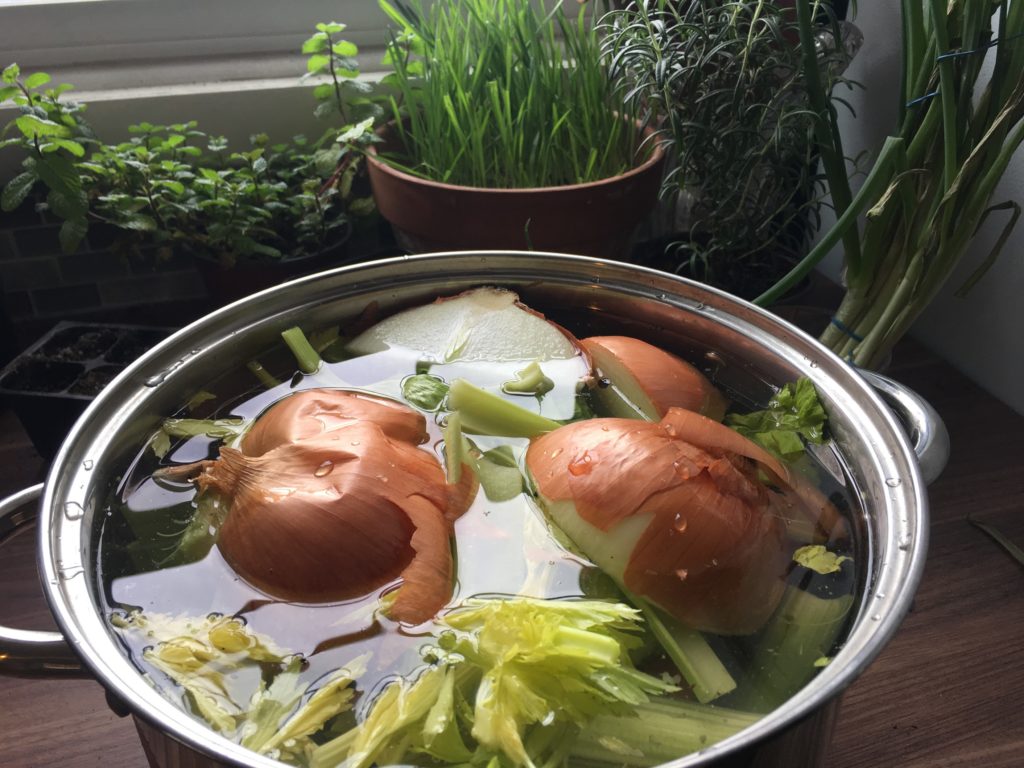
5 Steps to Boost Digestion
August 20, 2019

Enjoying food is a universal experience appreciated and valued by people across the globe. Sharing food with our family and friends is truly a source of joy and connection, but when we can’t properly digest food mealtimes can become a source of stress and anxiety instead.
Digestive disorders are chief among the health complaints made across industrialized nations. Chronic issues such as chronic heartburn, irritable bowel syndrome , inflammatory bowel disease, ulcerative colitis, recurring gut infections, small intestinal bacterial overgrowth, malnutrition, crohns disease, and leaky gut among others are still on the rise. I constantly hear folks talk about their struggles with digestive issues and know firsthand just how debilitating they can be.
Do you struggle with digestion? With all this talk of digestive dysfunction, I wanted to share with you my 5 favorite tricks help heal your digestive system. These practices are simple and easy to implement, yet they are profoundly beneficial to our overall health and quality of life.
1. Eat plenty of fermented foods and take probiotics.
Fermented foods such as sauerkraut, kimchi, yogurt, kefir, kombucha, and many others are making a major comeback in health food stores across the U.S. And with good reason! Fermented foods contain more bioavailable nutrients than their raw or cooked counterparts. Bioavailability refers to the ease with which our body can actually absorb and assimilate nutrients.
Our bodies truly are ecosystems in and of themselves, with crazy complex interactions going on between our own cells and bacteria, fungi, and other microbes that play vital roles. Our microbiome affects not only digestion and nutrient assimilation, but even impacts our energy, mood, memory, cognition, immunity, lifespan, hormone balance, stress levels, mental health, and so much more. I’ll definitely get into this in future videos and will recommend some amazing books, but for now – trust me on this!
I know probiotics can be costly, so sometimes a great option is to buy a bottle of probiotics and to only take it a couple days a week. You can also make homemade ferments using the probiotic capsules as a starter, thereby ensuring you’ve got a wide variety of bacterial strains. Ultimately homemade ferments are more cost-effective and produce much less waste.
2. Start making meat stock and bone broth.
Stock and broth utilize food scraps like bones, organ meats, vegetable peels and tops, egg shells, etc. that most people throw away. You can now stop throwing these valuable sources of nutrition in the compost and start getting more for your money!
Meat stock and bone broth also helps your body utilize protein more efficiently, reducing the amount you need to eat (which is awesome since industrial farming of animals is both highly unethical and damaging to the environment).
Stock and broth help to promote the secretion of HCl (hydrochloric acid) in the stomach and other digestive juices in the GI tract. Insufficient HCl is currently a widespread and vastly underdiagnosed issue (which I’ll discuss in another post all on its own). Stock and broth are very high in amino acids needed to heal, strengthen, and build connective tissues in our entire body. They are also full of electrolytes which help keep us hydrated and energized!
Stock and broth contain gelatin which improves the integrity of collagen and can improve the quality of intestinal tissues, skin, hair, nails, and bones. Gelatin is a super soothing and anti-inflammatory substance for the GI tract. The most important healing factor of meat stock and bone broth are that they heal and seal the gut lining. The gelatin and amino acids in meat stock have the ability to soothe, heal, repair, and seal the lining of the small intestine where leaky gut takes place.
3. Take bitters at mealtimes.
Well technically, you want to take your bitters around 20 minutes before eating. As little as 5 drops right on your tongue will do, but you must taste the bitters.
Bitters prime our bodies for digestion by exhibiting a number of effects on the entire gastrointestinal (GI) tract. Bitters stimulate our appetite, promote optimal digestion, and improve assimilation of nutrients. Ultimately bitters stoke what is called our digestive fire (which is essentially referring to the energy, strength, and ability of our digestive system).
There are a number of bitters sold on the market today as tinctures and I’ll definitely be sharing a how to make these at home in the future. If you feel super confused and lost on how to find bitters, let me know and I’ll make some recommendations!
For now a few bitter herbs that are easy to find include: burdock, chamomile, chicory, dandelion, fennel, yarrow, and yellow dock. Chances are some of these are growing somewhere nearby or can be found at the grocery store!
4. Use digestive herbs and spices in your home-cooked meals.
Bitters are one important category of digestive herbs, but there are a few others that deserve our attention. These include astringents, demulcents, and carminatives. Many of these categories of herbs are traditional culinary spices that are likely already in your kitchen cabinet!
When cooking get creative with spices like fennel, cardamom, ginger, turmeric, cinnamon, paprika, and even black pepper! Start adding them to your meals more frequently and even try making your own spice blends.
These herbs and spices will improve digestion, absorption and assimilation of nutrients, add lots of flavor, and reduce inflammation! This is truly an easy habit to get into and you will notice how it affects your digestion.
If you really struggle with gas and bloating, fennel seeds are my go-to remedy. Keep a little dish of fennel seeds on hand in the kitchen at all times! I carry fennel tincture with me at all times and it has been a lifesaver on more than one occasion.
5. Start drinking herbal tea.
My go-to herbs to include in a digestive tea are: marshmallow root, fennel seeds, chamomile flowers, and mint. These four are a great group to start with if you are new to herbal tea. They all taste delicious and are virtually safe for everybody (including kids).
Not all teas are going to help with digestion, so I definitely recommend starting with these or looking for an already made bagged herbal tea that is for digestion. Other herbs that you might find in a digestive tea include: cinnamon, slippery elm, fenugreek, ginger, linden, lemon balm, cardamom, and dandelion. All herbs exhibit a number of complex interactions within the body, so naturally they are never working directly with one system in exclusivity.
A great example of this is that drinking calming teas that work primarily with the nervous system, will help your body move into a relaxed state where it can more effectively digest food. When we are in a state of high stress, which many of us are most of the time, our body alters blood flow away from the digestive system and we struggle to absorb and assimilate nutrients efficiently. When our bodies shift into a relaxed state, where the parasympathetic nervous system has more control, we are in the ‘rest and digest’ state. Blood flow shifts towards vital organs and our digestive system can do its job right!
Ultimately drinking herbal tea is beneficial to the whole body, but it’s certainly one of the best tools for healing digestive dysfunction as well.
Let me know how these tricks have helped you in the comments or by sending me a message!
xoxo Kelsey
As always we want to prioritize ingredients that are: local, pasture-raised, unrefined, fair trade, organic, and responsibly sourced whenever possible. I don’t list these next to my ingredients because I think it can be overwhelming when reading a recipe, but know that I prioritize all of these things whenever possible. They are both important and worth the extra cost.
“We need to stop calling local food expensive and start calling it valuable.” -@womenwhofarm